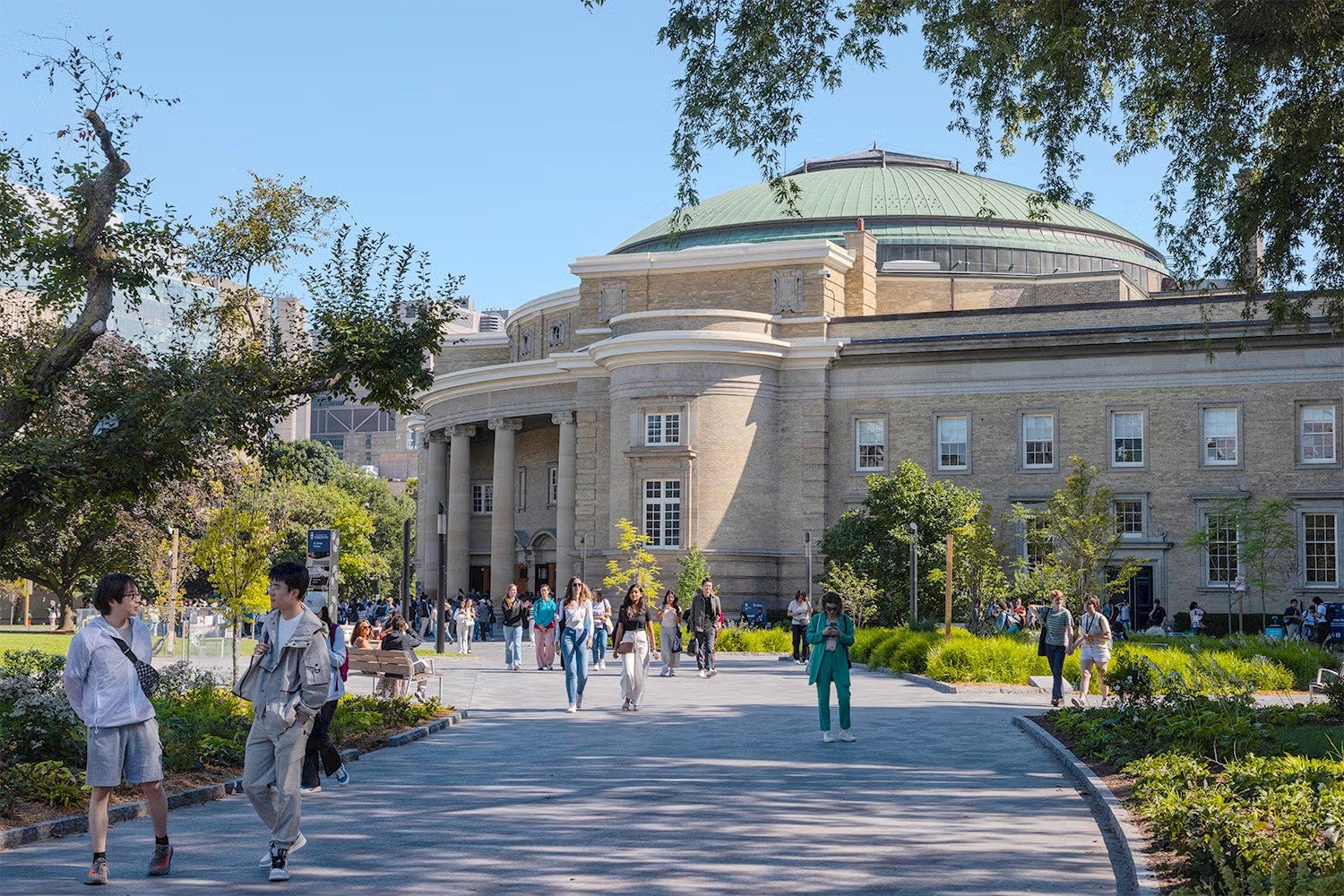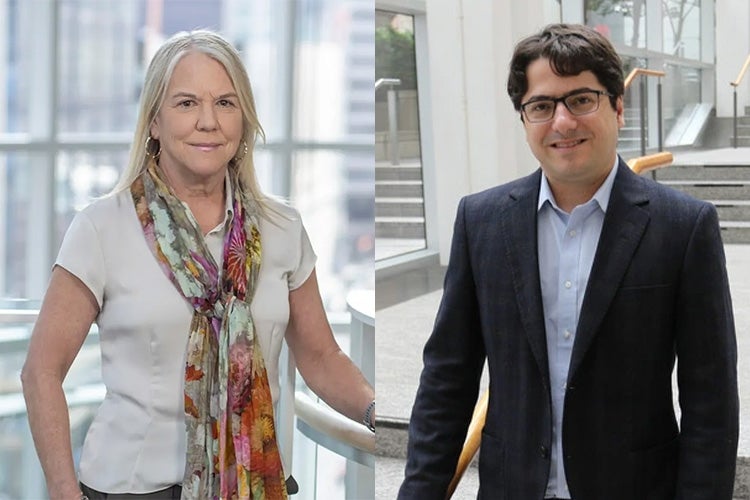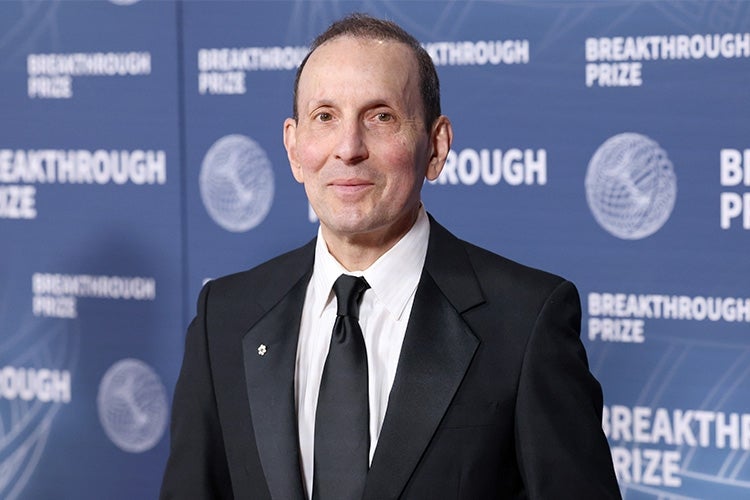
18 U of T researchers recognized with Connaught Innovation Awards
Published: April 10, 2025
Eighteen researchers at the University of Toronto are receiving 2024-25 Connaught Innovation Awards in support of their impactful research.
Connaught Innovation Awards provide one-time seed funding to help accelerate the development and commercialization of technologies with high potential to have a positive impact on society. They are backed by the Connaught Fund – the largest internal university research funding program in Canada.
“I am delighted to congratulate the recipients of the 2024-25 Connaught Innovation Awards, who are helping address some of the most profound and pressing challenges of our time," said Leah Cowen, U of T’s vice-president, research and innovation, and strategic initiatives. “From clean power generation to cancer therapies and privacy-sensitive data processing, these faculty members are pursuing innovative scholarship that stands to benefit Canada and the world."
This year’s recipients are:
- Aereas Aung, Institute of Biomedical Engineering, Faculty of Applied Science & Engineering – Mobilizing B cells for cancer therapy
- Swetaprovo Chaudhuri, U of T Institute for Aerospace Studies (UTIAS), Faculty of Applied Science & Engineering – Developing a self-decarbonizing micro-gas turbine for clean power generation
- Eyal de Lara, department of computer science, Faculty of Arts & Science – Real-time data processing for privacy-sensitive health care applications
- Michael Garton, Institute of Biomedical Engineering, Faculty of Applied Science & Engineering – De-risking a human GPCR-ome on a chip device for commercialization of rapid drug screening
- Siew-Ging Gong, Faculty of Dentistry – Optimization of stability and delivery formats for VAR6, a probiotic for oral health
- Axel Guenther, department of mechanical and industrial engineering, Faculty of Applied Science & Engineering – Pre-clinical validation of personalized bioinks for treating full thickness skin wounds.
- Benjamin Hatton, department of materials science and engineering, Faculty of Applied Science & Engineering – Antimicrobial surface layers for medical gloves to reduce infectious disease transmission
- Jeffrey Henderson, Leslie Dan Faculty of Pharmacy – Utilization of hydrostatic pressure for safe, scale-independent, low-cost modification of difficult to transfect primary cell types such as stem cells
- Eunice Eunhee Jang, department of applied psychology and human development, Ontario Institute for Studies in Education (OISE) – BalanceAI: Advancing educational assessment through AI-driven diagnostic screener
- Deepa Kundur, Edward S. Rogers Sr. department of electrical and computer engineering, Faculty of Applied Science & Engineering – Industrial control system honeypots for intelligent cyberattacker engagement
- Emma Master, department of chemical engineering and applied chemistry – Integrated biocatalytic technology to upgrade underused and renewable biomass to biochemicals
- Andreas Moshovos, Edward S. Rogers Sr. department of electrical and computer engineering, Faculty of Applied Science & Engineering – ByteShape: An ecosystem for seamless machine learning application binding
- Aaron Wheeler, department of chemistry, Faculty of Arts & Science – Method and system for detection of sperm using virtual-staining
- Ning Yan, department of chemical engineering and applied chemistry – Green bio-based halogen-free flame-retardant technology for EVs
- Paul Yoo, Institute of Biomedical Engineering, Faculty of Applied Science & Engineering – An implantable device for continuous arterial blood pressure measurement.
- Yana Yunusova, department of speech-language pathology, Temerty Faculty of Medicine – VirtualSLP: an automated management platform for diseases affecting speech, swallowing and breathing
- Yu Zou, department of materials science and engineering, Faculty of Applied Science & Engineering – Electrodeposition of calcium polyphosphate for orthopedic implants
- Michael Thompson, department of chemistry, Faculty of Arts & Science – Development of a rapid and cost-effective point-of-care testing device prototype for ovarian cancer screening
The Connaught Fund supports U of T scholars through programs such as the New Researcher Award, Community Partnership Research Program, Major Research Challenge for Black Researchers, McLean Award and international doctoral scholarships. It was established in 1972 through the sale of Connaught Medical Research Laboratories, which is known for the discovery and production of insulin.



